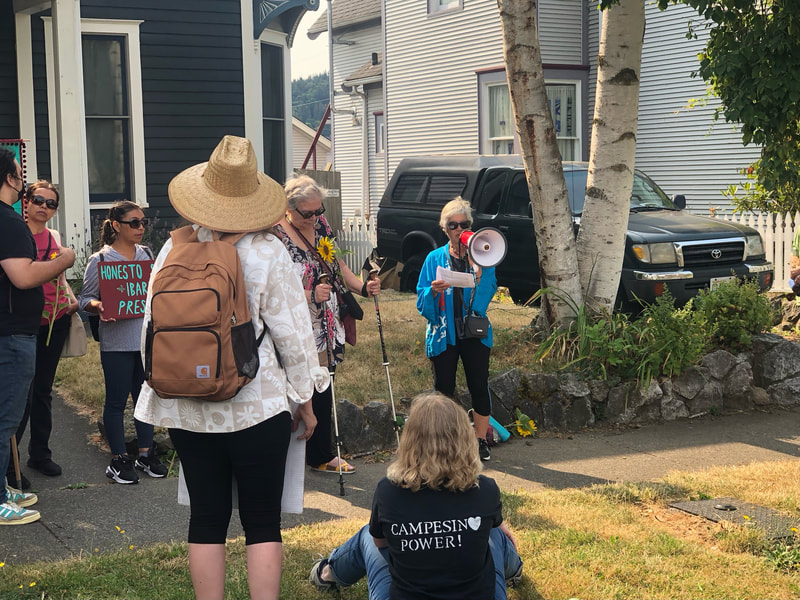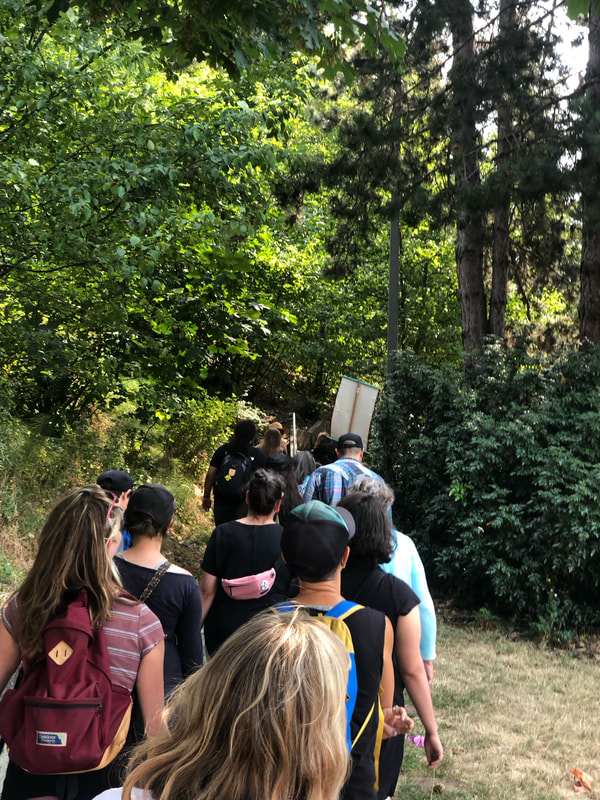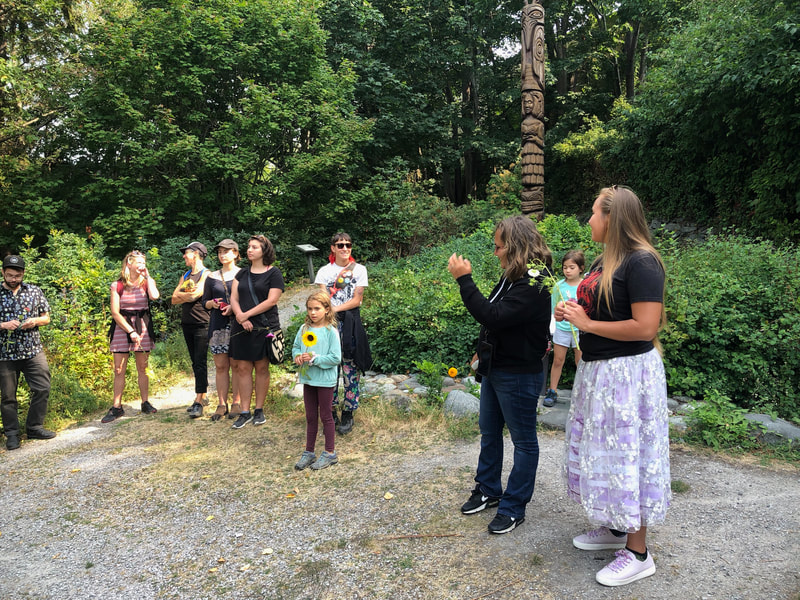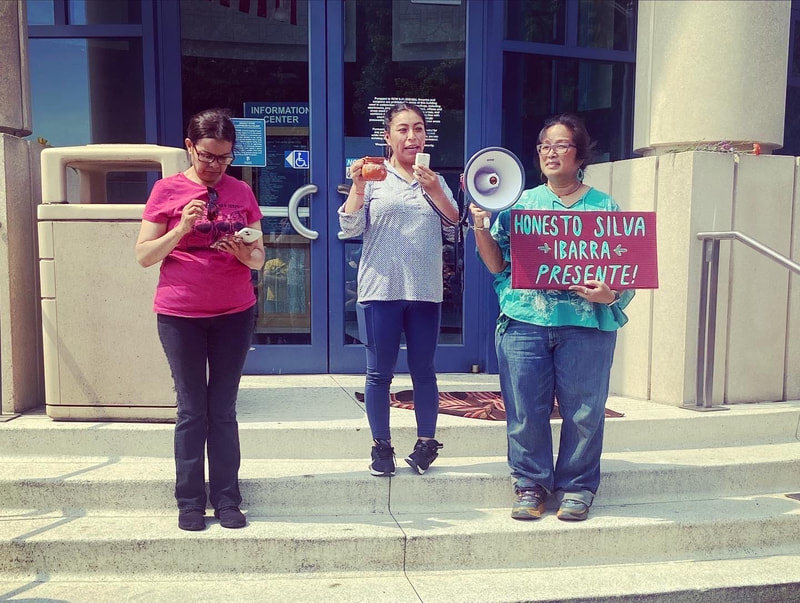|
On August 6th, we co-hosted a walking tour of Bellingham in remembrance of our shared history in conjunction with Community to Community Development, Nikkei Northwest, Whiteswan Environmental (WE), and Northwest Youth Services. Together we visited five important sites in downtown Bellingham that hold memories of violence and oppression: the Okubo House, the Pickett House, the Salmon Woman Totem Pole in Maritime Heritage Park, the Dupont Street Bridge over Whatcom Creek, and the Whatcom County Courthouse.
On our walk, we visited the former home of James Okubo, a posthumous Medal of Honor recipient who attended Western until he and his entire family were removed and sent to camps in 1942. Bellingham’s anti-Asian history persists in a city where racial slurs like “Oriental Avenue” remain on a street sign near Lake Whatcom. The event also occurred on Hiroshima Remembrance Day, recognizing the ongoing impacts of nuclear war on survivors and the continuing threat of nuclear violence as our state houses both the Hanford Nuclear Plant where the plutonium used for the atomic bomb dropped on Nagasaki was enriched as well as the Trident Nuclear Submarine Base where one of the world’s largest concentration of nuclear weapons sits today. In reckoning with Bellingham’s history of colonization, white supremacy and oppression we also visited the house named after Confederate General George Pickett and discussed his continued recognition in Bellingham including a local bridge that once bore his name. We spoke about those who should be honored: the Indigenous people who the land chose, who have stayed with it and cared for it, and were violently displaced from traditional village sites throughout the United States and Canada and relocated to federally reserved lands. We also visited Whatcom Creek where the 1855 Point Elliott treaty signer for Lummi Nation, Chowitsut, welcomed the first settlers Roeder and Peabody to fresh water and food. The creek which our county is named after means “Noisy Waters” in the Lummi language. Now, many houseless people find respite from police sweeps and violence in this place. We ended our tour in front of Lummi carver Joe Hillaire’s Centennial Pole and the Whatcom County jail and courthouse, where many continue to be denied their basic right to freedom and dignity. We recognized the anniversary of the passing of farmworker Honesto Silva Ibarra, who died due to heat stress and wildfire smoke in Whatcom County in 2017. We spoke about the basic human right to water, how a glass of water was denied to Honesto, as well as the ongoing harm and displacement caused to BIPOC, immigrants and houseless people due to climate change, pesticide use, militarism, colonialism, incarceration, and exploitation. Through the event we were reminded of how Bellingham's community maps the ongoing impacts of white supremacy and colonization and the current displacements due to climate change and the housing crisis. Our organizations came together to mark these histories of oppression in service of co-constructing a future where those who have been pushed out and pushed down can experience liberation, safety, and community. |
Contributors
We invite the WPJC community to contribute fact-checked submissions on local, national and global current events. Linking to original sources and articles is required. Submissions may be sent to [email protected] for review. Categories
All
Archives
May 2024
|







 RSS Feed
RSS Feed